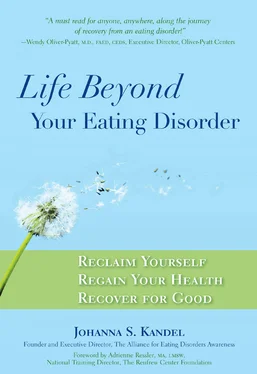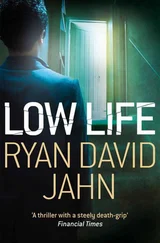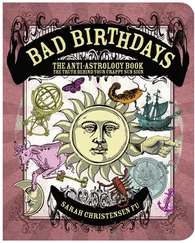While you might think it would be disturbing for me to learn that anorexia was a brain disease, it was actually validating to know that there was a biological explanation for my problem. And Dr. Insel didn’t leave me feeling powerless, because he went on to say that “most women with anorexia recover, usually following intensive psychological and medical care.” So, it is truly not your fault that you have an eating disorder. Even better, it is possible to recover—and you shouldn’t be expected to cure it all on your own.
Simply telling someone with an eating disorder to “just get over it and sit down and eat” is never going to work. What are you supposed to say to that? “Oh yeah, you’re right. For all those years I was struggling with anorexia the real problem was that I just forgot to eat, but now that you’ve reminded me I’ll remember. Thanks!” No! Initially, I’d actually thought it would be that easy. I thought I could just sit down, eat a meal and not restrict, binge or act out. But, of course, it wasn’t easy. It isn’t, and it’s not supposed to be. But now I have a valid, scientific explanation not only for why I’d developed an eating disorder but also for why recovery wasn’t so easy.
It is truly not your fault that you have an eating disorder. It is possible to recover—and you shouldn’t be expected to cure it all on your own.
Walter Kaye, MD, of the University of Pittsburgh Medical Center, working with an international group of doctors, has collected information from more than six hundred families in which two or more members had an eating disorder. In an article titled “Genetics Research: Why Is It Important to the Field of Eating Disorders?” Craig Johnson, PhD, director of the Eating Disorders Program at Laureate Psychiatric Clinic and Hospital in Tulsa, Oklahoma, states that these results may be nothing short of a breakthrough. They suggest that both anorexia and bulimia “are as heritable as other psychiatric illnesses such as schizophrenia, depression, anxiety and obsessive-compulsive disorders.” And other clinical studies have also supported this evidence. One, conducted at the University of North Carolina at Chapel Hill, reviewed information from more than thirty-one thousand people in the Swedish Twin Registry and determined that genetics is responsible for 56 percent of a person’s risk of developing an eating disorder—with environmental factors determining the rest.
As with almost all diseases and conditions, genetics may predispose us to being more susceptible, but our environment and lifestyle choices either increase or decrease our chances of actually getting the disease. According to Dr. Kaye, “We think genes load the gun by creating behavioral susceptibility, such as perfectionism or the drive for thinness. Environment then pulls the trigger” (Journal of the American Medical Association, Vol. 290, No. 11, Sept. 17, 2003). The problem, of course, is that if we know, for example, that we’re predisposed to developing high blood pressure, we can avoid eating salty foods. But we can’t remove ourselves from the world, and the world we live in is filled with messages and images that hold up thinness as a measure of perfection. All we can do is try to nurture our children’s self-esteem and help them to develop a healthy body image.
As I thought about Dr. Kaye’s words, I realized that when I started down my path to anorexia and bulimia, all I wanted to do was better myself, and I was in an environment that encouraged me to lose weight and be thin. I truly believed that if I lost weight I’d be a better dancer, and that was the most important thing in my life, the only thing I really cared about. So, not only my own perfectionism but also the environment in which I’d immersed myself were working together to put me at risk for developing an eating disorder.
When I ask members of my support groups whether there’s anyone else in their family with an eating disorder, I see a lot of people shaking their heads no. And then I ask, “Well, what about your aunt Suzy or uncle Bob, who will only eat particular foods, has peculiar eating habits or is exercising all the time?” and all of a sudden their eyes light up and hands go into the air.
Looking back on it now, I can see that not only eating disorders but also alcoholism, depression and anxiety run in my family. I remember being a little girl and visiting an aunt, my father’s sister, who worked for a large clothing store in Paris. She was petite and thin, and I recall her telling me that her secret to being skinny was to eat just one fast-food fish fillet sandwich a day. At the time, I didn’t think, Okay, I’m going to do that, but it did reinforce the idea that weight was an issue and that thinness was something to work for. And now, of course, I know that my aunt must have had some kind of eating disorder—or disordered eating—herself.
In addition to what I observed in my father’s family, my mother’s sisters have also struggled with poor body image and have always been extremely conscious of everything they ate. So, in fact, there were eating and body image issues on both sides of my family. For me, the genetic gun was definitely loaded and just waiting for the environmental circumstances that would pull the trigger. I really didn’t roll out of bed one morning and decide to be anorexic! And it’s important for your recovery to understand that neither did you.
Make That Information Work for You
So, now you know you probably have a genetic predisposition that contributed to your developing an eating disorder. Does that mean you should just sit back and use it as an excuse to keep on destroying your health and your life? Absolutely not!
Eating disorders don’t develop overnight, and getting better doesn’t happen overnight, either. Everyone slips and falls. But eventually those trips and falls become less and less frequent, and recovery becomes a reality.
Giving up the guilt is entirely different from giving yourself an excuse. Now that you know your eating disorder has biological/psychological/social roots, you can use that information to release any lingering feelings of guilt you might have and direct your energy toward doing what it’s going to take to recover. You just need to be aware that recovery isn’t going to be simple, because the problem itself is complex. There is no one single factor that caused your eating disorder, and there won’t be one single strategy that leads to recovery. I remember the mother of an amazing young woman in one of my groups saying that she simply couldn’t understand why her daughter still wasn’t getting better; she had taken her to see a psychiatrist, a psychologist, a nutritionist and a physician who specialized in treating eating disorders. To the mother’s mind, since she was doing all the right things, her daughter should have been showing drastic improvement. I said to that worried mom what I say to everyone in my support groups: eating disorders don’t develop overnight, and getting better doesn’t happen overnight, either. Everyone slips and falls and gets up, then maybe even trips and falls again. But eventually those trips and falls become less and less frequent, and recovery then becomes a reality. It takes time, and it’s a journey that doesn’t follow a straight path.
Конец ознакомительного фрагмента.
Текст предоставлен ООО «ЛитРес».
Прочитайте эту книгу целиком, купив полную легальную версию на ЛитРес.
Безопасно оплатить книгу можно банковской картой Visa, MasterCard, Maestro, со счета мобильного телефона, с платежного терминала, в салоне МТС или Связной, через PayPal, WebMoney, Яндекс.Деньги, QIWI Кошелек, бонусными картами или другим удобным Вам способом.












